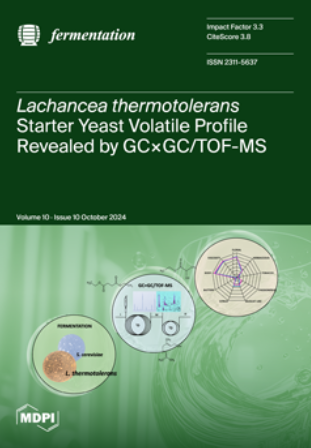酵母介导生物燃料生产的生物质增值:文献综述
IF 3.3
3区 农林科学
Q2 BIOTECHNOLOGY & APPLIED MICROBIOLOGY
引用次数: 0
摘要
欧盟建议,到2050年,全球约10%至50%的能源需求应由废弃生物质资源补充,以实现净零排放经济的目标。这导致人们对利用先进或集成系统开发适当的生物燃料生产技术进行了深入研究,以利用废物原料应对地方、国家和全球的能源挑战。研究人员已经意识到微生物(例如酵母菌株)在生物能源生产方面的潜力。本文对非含油酵母和含油酵母进行了综述,重点介绍了它们在代谢和耐受性方面的多样性,以应对因使用废物原料和影响生物加工而产生的各种挑战。收集有关酵母代谢的深入知识和信息为更新更好的技术铺平了道路,将其用于综合生物精炼厂,不仅可以生产生物燃料,还可以减少工艺费用,降低净碳排放的风险。本文还描述了使用通过代谢工程和遗传操作改进的酵母菌株的基本原理,这些菌株可以充分满足替代燃料资源的挑战。这篇文献综述介绍了酵母生物燃料生产的优点和缺点,并强调了技术的进步以及它们与传统方法的对比。在过去的十年里,科学出版物支持了生物精炼厂的理念,以实现环境友好、成本效益高和可持续的生物燃料生产。本文章由计算机程序翻译,如有差异,请以英文原文为准。
Yeast-Mediated Biomass Valorization for Biofuel Production: A Literature Review
The European Union has recommended that about 10–50% of the global energy requirement should be supplemented by waste biomass resources by 2050 in order to achieve the objective of having net-zero-emission economies. This has led to intensive research being conducted on developing appropriate biofuel production technologies using advanced or integrated systems to tackle local, national, and global energy challenges using waste feedstock. Researchers have realized the potential of microbes (e.g., yeast strains) for bioenergy production. For this paper, both non-oleaginous and oleaginous yeasts were reviewed, with a specific focus being placed on their diversity in metabolism and tolerance to the various challenges that arise from the use of waste feedstock and influence bioprocessing. Gathering in-depth knowledge and information on yeast metabolism has paved the way for newer and better technologies to employ them for consolidated biorefineries to not only produce biofuels but also to cut down process expenses and decrease the risks of net carbon emissions. The rationale for using yeast strains improved by metabolic engineering and genetic manipulation that can substantially meet the challenges of alternate fuel resources is also described in this paper. This literature review presents the advantages and disadvantages of yeast-based biofuel production and highlights the advancements in technologies and how they contrast to conventional methods. Over the last decade, scientific publications have endorsed the idea of biorefineries for environmentally friendly, cost-effective, and sustainable biofuel production.
求助全文
通过发布文献求助,成功后即可免费获取论文全文。
去求助
来源期刊

Fermentation-Basel
BIOTECHNOLOGY & APPLIED MICROBIOLOGY-
CiteScore
3.80
自引率
18.90%
发文量
594
审稿时长
7 weeks
期刊介绍:
Fermentation-Basel is an international open access journal published by MDPI, focusing on fermentation-related research, including new and emerging products, processes and technologies, such as biopharmaceuticals and biotech drugs. The journal enjoys a good reputation in the academic community and provides a high-impact forum for researchers in the field of bioengineering and applied microbiology.
 求助内容:
求助内容: 应助结果提醒方式:
应助结果提醒方式:


